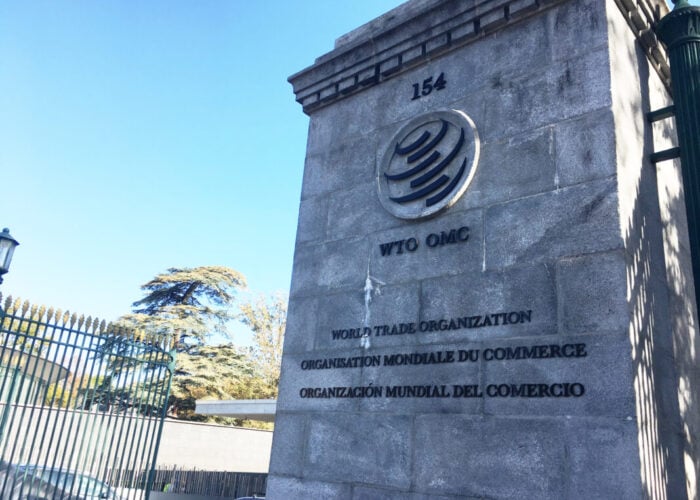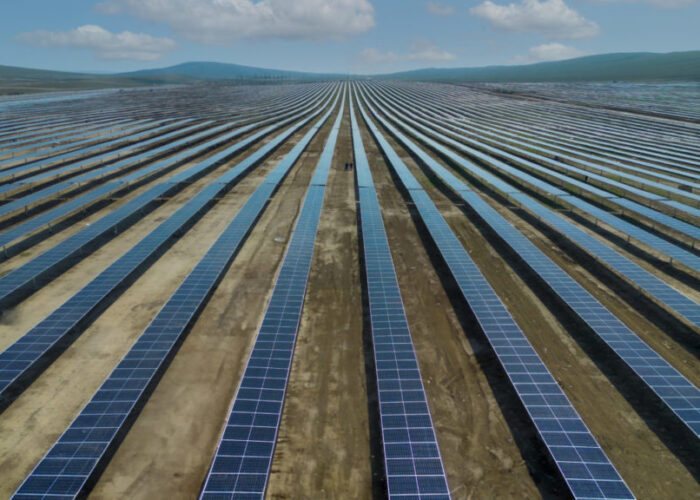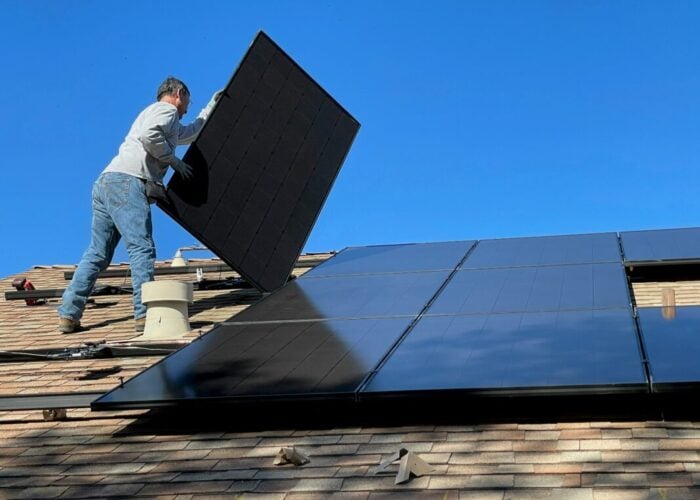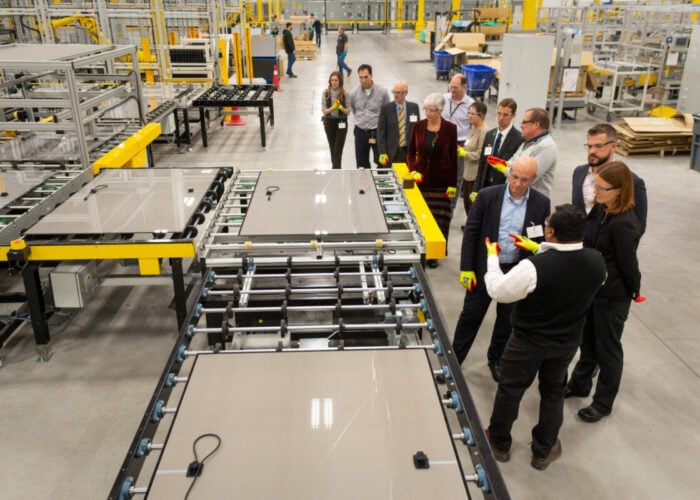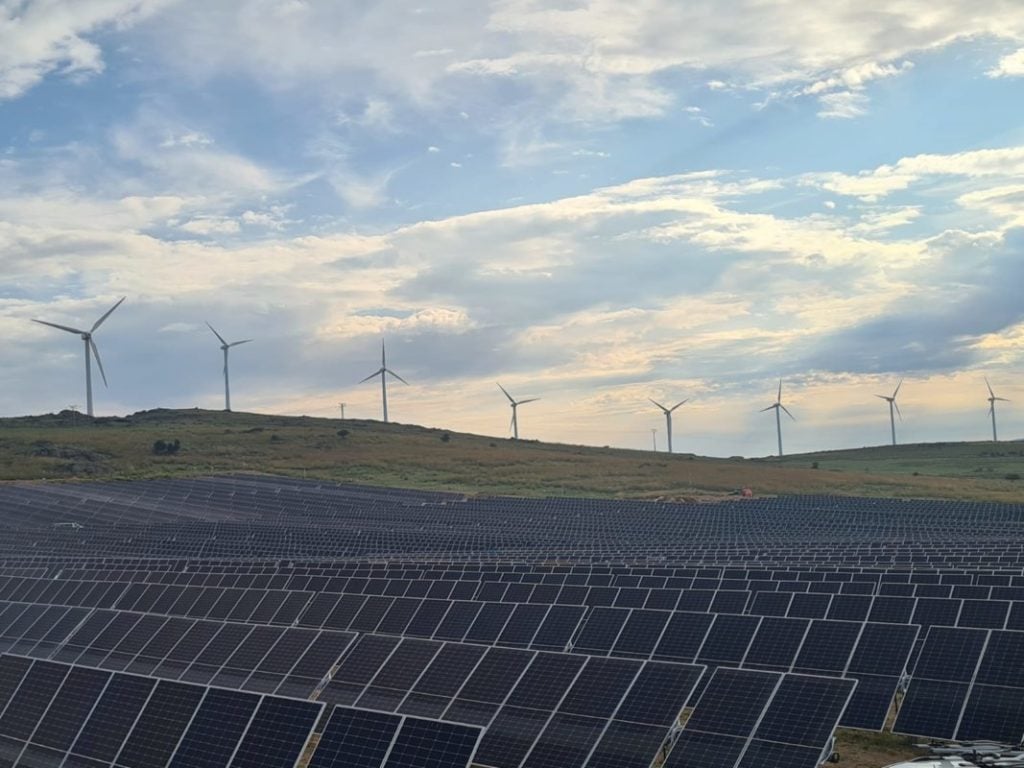
At least US$2.7 trillion must be invested in renewables, infrastructure and energy transition technologies annually to achieve global net-zero emissions by 2050, according to energy research company Wood Mackenzie.
In its Energy Transition Outlook 2023, Wood Mackenzie outlines three scenarios about energy transition. In the 1.5 degree scenario, carbon emissions should align with the most ambitious goal of the 2015 Paris Agreement, while low-carbon hydrogen and carbon removal technologies will play a significant role.
Try Premium for just $1
- Full premium access for the first month at only $1
- Converts to an annual rate after 30 days unless cancelled
- Cancel anytime during the trial period
Premium Benefits
- Expert industry analysis and interviews
- Digital access to PV Tech Power journal
- Exclusive event discounts
Or get the full Premium subscription right away
Or continue reading this article for free
Electricity share of final demand will rise to 50% by 2050 too, according to the 1.5 degree scenario.
In the 2 degree scenario, a total of US$1.9 trillion needs to be invested each year. Wealthier countries will reach net-zero by 2050 while global net-zero will be realised by 2070.
The 2.5 degree scenario will also require annual spending of US$1.9 trillion, although the world will still be on track for an average temperature increase of 2.5 degrees Celsius by 2100.
The study also states that renewables account for 70-90% of supply to offset the decline in thermal power across scenarios.
However, no major country is currently on track to meet their 2030 emissions reduction goals, according to the report. Wood Mackenzie suggests countries worldwide must address obstacles including permitting restrictions and constraints in the electricity supply chain.
The financial landscape is also less favourable for increasing renewables capacity as high interest rates, global cost inflation and supply chain issues are slowing the pace of the implementation of renewables.
There is also the issue that many of the most straightforward locations for solar and wind developments already host renewable power projects. The next phase of growth will require investment in grid infrastructure and interconnections in more remote areas.
“The supply of low carbon energy has grown by a third since 2015, but the world’s energy demand has grown much faster with rising incomes and populations,” said Simon Flowers, chairman and chief analyst at Wood Mackenzie.
“The good news is that sustainability is alive and kicking, spurred on by policy including the introduction of the US Inflation Reduction Act (IRA) and Europe’s REPowerEU. Achieving 1.5 degrees Celsius is going to be extremely challenging, but it is possible and greatly depends on actions taken this decade,” he added.

